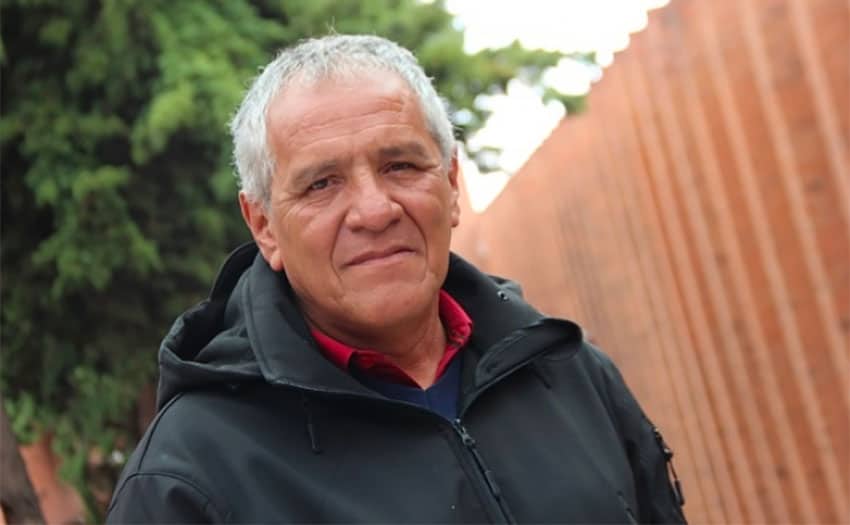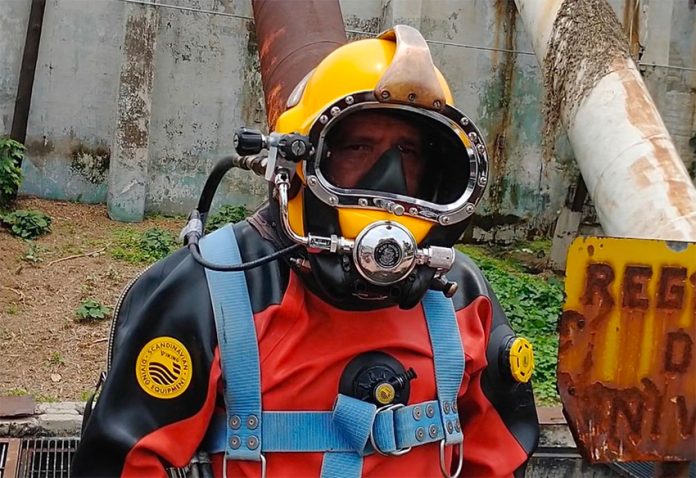Most people would prefer not to think about it but one 62-year-old man has “swum” in it for more than half his life.
Julio César Cu is Mexico City’s chief – and only – sewer line diver, meaning that he spends a lot of his time immersed in viscous, smelly sewage.
On a typical day, Cu is submerged in the stuff – which is supplemented by medical and industrial waste – for 20 minutes to four hours as he carries out maintenance work and removes objects and other matter that could block the system.
Toys, domestic appliances, condoms, car parts, dead animals and even human bodies are just some of the things he has encountered since becoming a diver for Mexico City’s water and sewer utility in 1983.
Coming across dead bodies, however, is not the hardest part of the job, Cu told the newspaper Milenio just before undertaking a new mission.

“The most difficult thing is completely losing visibility at a depth of 10 centimeters,” he said while kitted out in a helmet and his specialized, heavy-duty diving suit, which was imported from Norway and prevents wastewater from coming into contact with his skin.
“I’ve tried lamps and other [lighting] devices but … I can’t see anything. Down there, my eyes are my hands and other senses.”
Cu started working as a draftsman for the water utility in the early 1980s but joined its industrial diving unit as a 23-year-old in 1983 and has continued as a diver for the past 38 years. He was already a trained diver when he joined the team and had enjoyed swimming from a young age.
But diving in a natural body of water and diving in Mexico City’s garbage-clogged sewers are oceans apart.
“Diving as a sport is dangerous because we enter a world that is not ours. In my work, the danger increases because tree trunks come along, nails come along, glass comes along and everything else that the drains suck up,” Cu said.
He explained that he is unable to swim like ordinary divers and instead has to drag himself along the sewers. Sometimes he is lowered into the sewers inside a protective cage. He faces the constant risk of a foreign object perforating his suit and his skin below but says he thrives on the danger.
“The fear in this job is latent, it’s always present in one way or another. Working with that sensation helps me to be more attentive to my work,” he said.
While Cu is the only sewer diver, he works with a team consisting of three other people – two assistants and a person known as a tender.
The assistants are responsible for managing the tubes connected to Cu’s oxygen tanks, while the tender uses an electronic console which monitors his depth and how much oxygen he has left.
Despite the dangers and difficulties he faces, the 62-year-old has described working in the sewers as his dream job. It is one that has not only given him an intimate knowledge of Mexico City’s dark underbelly but also the opportunity to help solve missing person cases.
“The police have asked for our help when there were accidents or searches for a [missing] person. I believe that’s the most impactful thing [I’ve done], to look for a person, find him and recover [his body],” Cu said.
Two of his former industrial diving colleagues retired and one was killed in the line of duty, leaving him on his own while blindly navigating the murky sewers of the capital.
“It’s just me who’s left here. Why do I stay? Because I like my job, I value it and I really like knowing that part of what I do benefits Mexico City.”
With reports from Milenio
